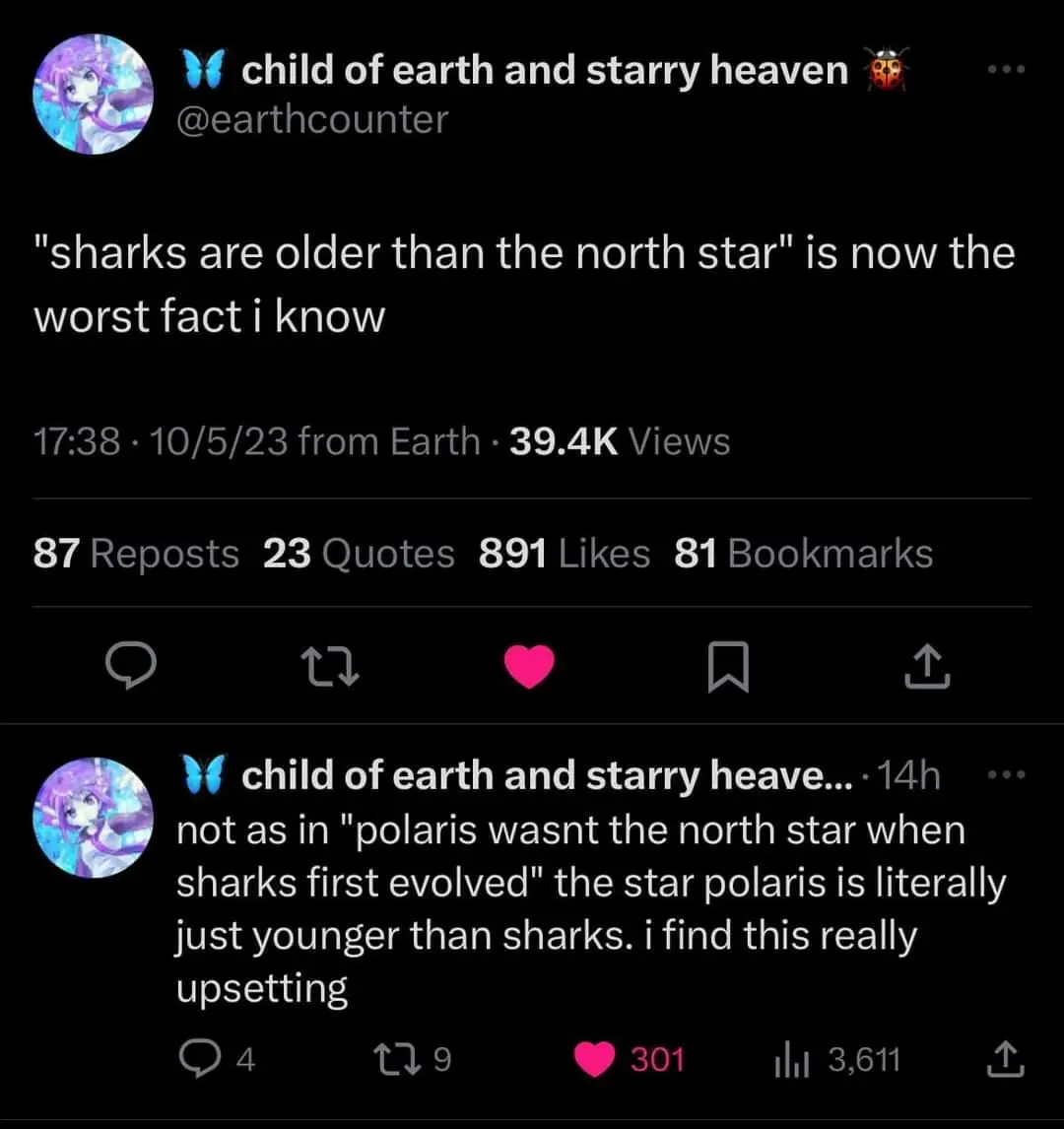this post was submitted on 08 Nov 2023
700 points (99.9% liked)
196
16552 readers
1962 users here now
Be sure to follow the rule before you head out.
Rule: You must post before you leave.
founded 1 year ago
MODERATORS
you are viewing a single comment's thread
view the rest of the comments
view the rest of the comments

Eh I doubt it. Every single nuke ever built combined still doesn't come close to the power of the Chicxulub asteroid (the one that killed the dinosaurs) and even that impact didn't come close to eliminating all life on Earth. Unless someone accidentally compresses a mountain into an artifical black hole or something there probably is no way to wipe out all life on Earth.
75% estimated extinction rate is quite close to me. :)
75% of all species, not all life. Larger species and photosynthesizers were more heavily affected, while smaller species, scavengers, and deep sea life were less affected.
And I'm not a biologist, but I'm pretty sure even 75% of all life, not species, still wouldn't be close to completely ending life on Earth, cause in the end as long as some microbes survived around a hydrothermal vent somewhere total extinction would be avoided.
I still think that "lifeless rock" does not specify how lifeless - theoretically extinct or just lifeless enough to make human life either extinct or just miserable. I took it as the latter, and in that case even lesser cases than 75% of all species would suffice.
The first case, the theoretical and non-human focused pov is quite another thing. Like you said, there's so many opportunities and adaptations for life to seap through the combs of doom :)
Going a couple comments up the chain:
So I took it to mean all life on Earth being dead. As long as one microbe survives to reproduce and start evolving it doesn't count.